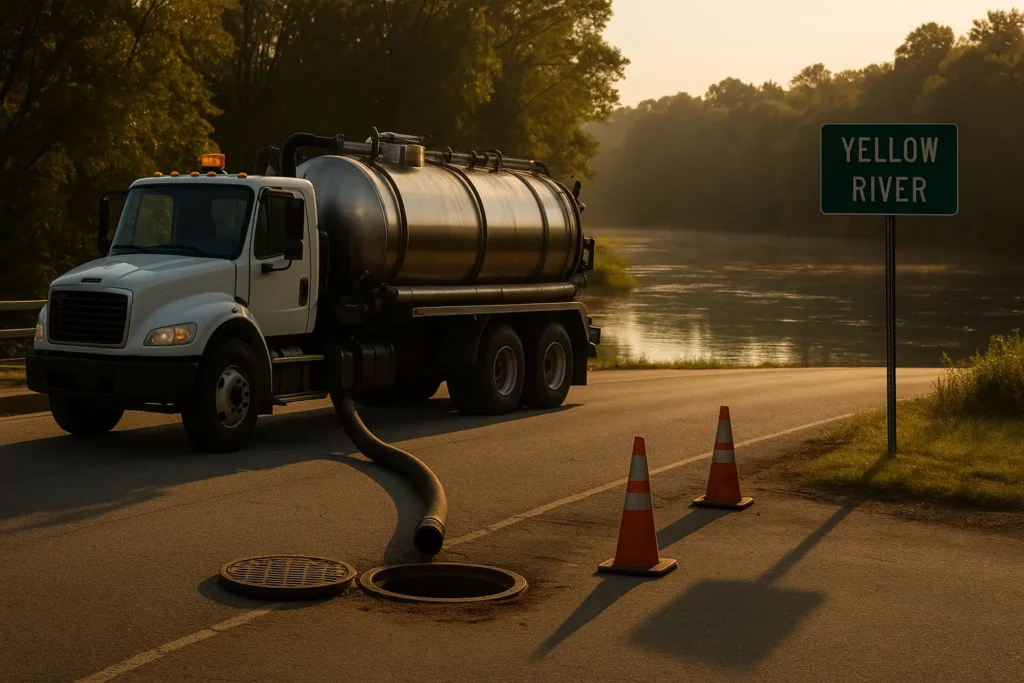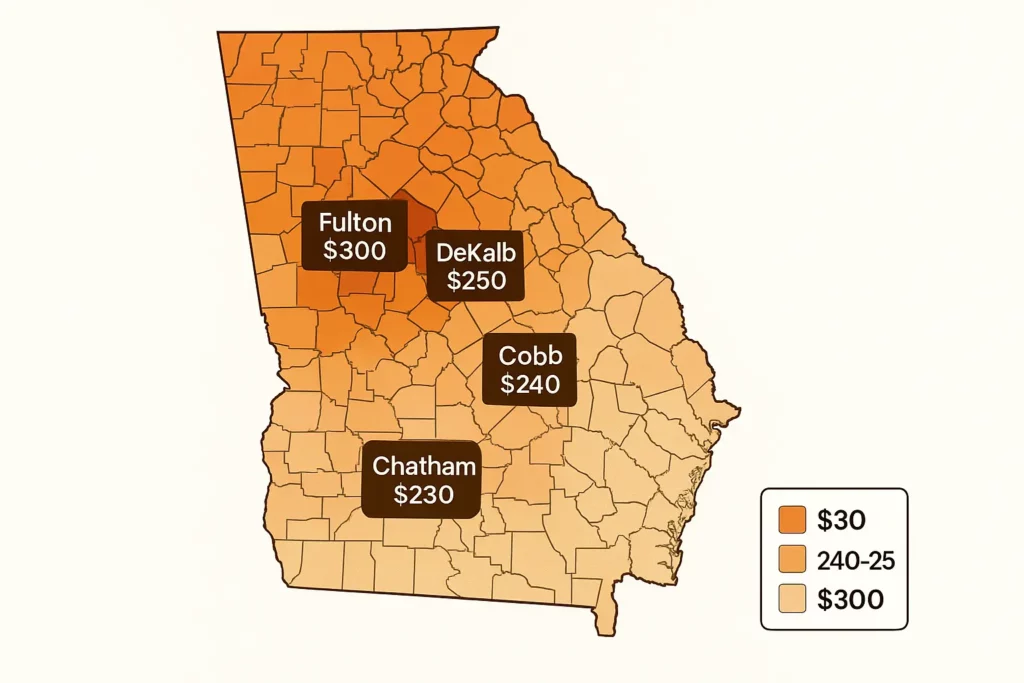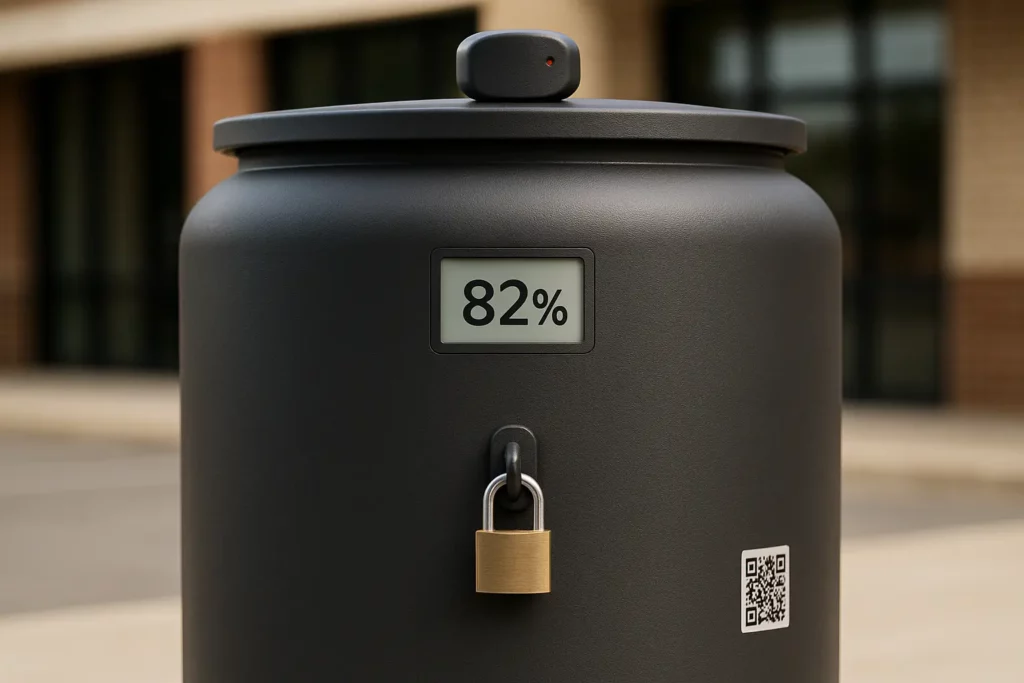Grease spills grab headlines, hurt margins, and invite fines. At Grease Connections, we see used cooking oil as an asset, not a liability. This Georgia focused field guide distills the newest laws, county penalties, and market shifts into an operator ready playbook you can scan, quote, and act on today.
Table of Contents
The grease problem hiding in plain sight
Early on 11 Jan 2023, Gwinnett crews vacuumed 1,876 gallons of sewage laced with fryer oil out of a Yellow River tributary, forcing park closures and downstream warnings. Every ounce of oil that slips past the mop sink hardens inside public lines, raising pump out taxes now topping $15 million statewide. Georgia Rule 391 3 6 .24 classifies that discharge as “commercial” waste and requires cradle to grave tracking paperwork inspectors can request without notice.

FOG rules: state backbone, local teeth
Georgia’s plumbing code sets a universal “25 % full or 90 days” pump out trigger. Counties then layer permits and civil penalties that escalate fast: Fulton starts at $300, DeKalb at $250, Chatham at $230, Cobb at $240. Missing a manifest is the infraction inspectors cite most often, not overflowing traps.
| County | Permit fee | First fine | Repeat fine |
|---|---|---|---|
| Fulton | $250 | $300 | $900 |
| DeKalb | $200 | $250 | $750 |
| Chatham | $160 | $230 | $690 |
| Cobb | $185 | $240 | $720 |

From fryer to fuel: turning waste into revenue
Licensed haulers such as Grease Connections (Atlanta) vacuum yellow grease, clarify it, and sell it into the renewable diesel market. Because federal biofuel demand keeps rising soy oil prices are up 11 % since Jan 2025 rebates now average $0.10 to $0.50 per gallon for quality oil in 2025. One Midtown café moving 200 gal/quarter nets up to $100 after service fees enough to offset its next pump out.
Designing a compliant grease plan
A solid program answers five questions:
- Where does every gallon go? Match fryer volume to hauler tickets; gaps flag theft or dumping.
- Is the trap sized right? Use county calculators to stay below the 25 % threshold.
- How is service scheduled? Set 60 to 90 day pulls; file manifests for three years.
- Are spills contained? Keep absorbent lime and cones beside outdoor tanks; Chatham requires hurricane rated lids.
- Who monitors levels? IoT sensors like Zurn SmartPro ping haulers at 80 % full, cutting surprise backups.
Daily habits that stop fatbergs
EPA studies show a 50 % drop in sewer overflows when staff scrape plates, dry wipe pans, and funnel hot oil through mesh before storage. Our DeKalb’s FOG team reports far fewer citations at restaurants that hold quarterly “five minute grease huddles” during shift change. Post clear “No Grease Down Drains” signs at every wash sink we supply printable files on request.
Tech tomorrow: smart tanks & sensor alerts
Connected interceptors now use ultrasonic probes to timestamp every fill and pump event, creating an audit trail inspectors can review from a tablet. Market analysts expect Georgia adoption of smart traps to double by 2027 as labor short QSR chains chase predictive maintenance savings. You can read more about innovative technologies here.

Why Grease Connections writes this guide
Restaurant owners and facility managers tell us their biggest fear is an unannounced inspection shutting the kitchen. Their biggest misunderstanding is believing the hauler not the restaurant “owns” compliance. The tipping point usually comes when they see rebate math that turns grease from cost center to micro revenue stream. The final objection “service costs too much” vanishes once the plan prevents a single $300 fine or a day of closure.









